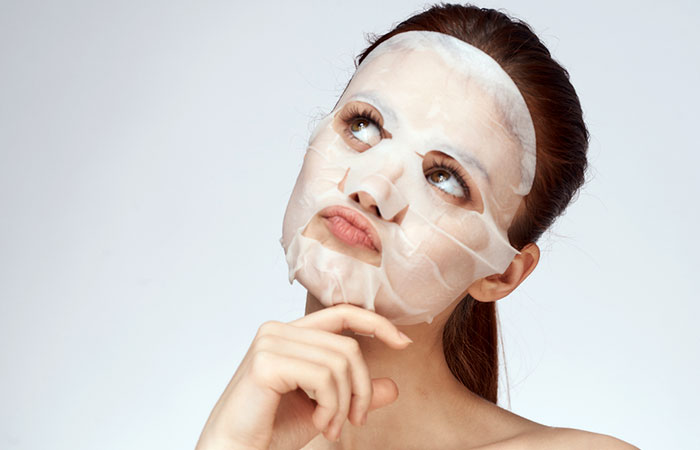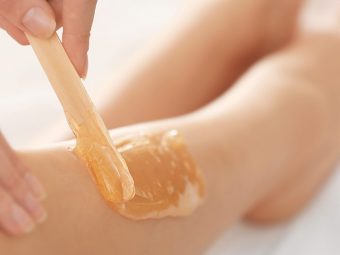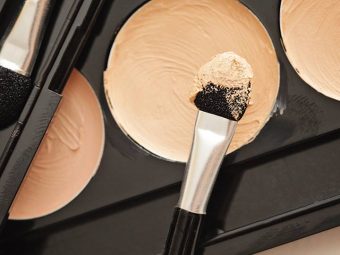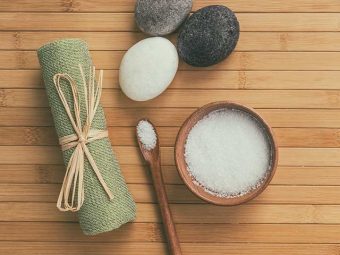How Often Should You Use Face Masks For Healthy Skin?
Understanding how these products work can be crucial in maintaining your skin’s pH balance.
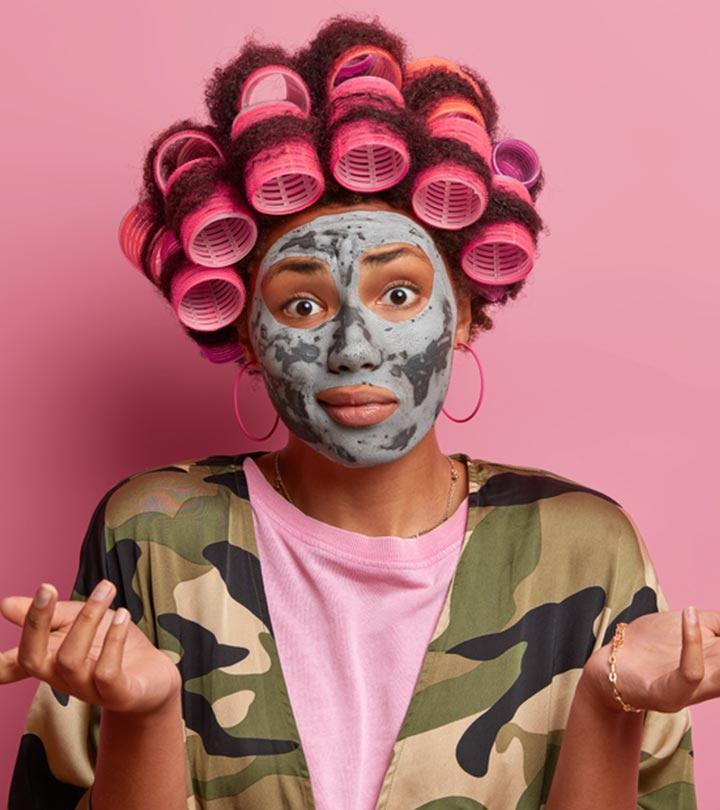
Many people are confused about how often you should use a face mask. To put it simply, too much of anything is never any good. This also applies to face masks. Face masks are something we all enjoy indulging in to enhance our skin. Whether it is a homemade mask, the trendiest sheet mask, or a peel-off mask, each has its own set of skin advantages. However, using these face masks too regularly might eliminate your skin’s natural oils and disrupt its pH balance. That is why it is crucial to understand how often each type of face mask should be used. That, and much more, has been explored in this article. Scroll down to find out everything you need to know!
In This Article
How Often Should You Use Face Masks?
How often you should use a face mask depends entirely on the purpose of the mask. Let us explain with the example of the different types of masks you usually use:
1. Korean Sheet Face Mask
These K-beauty sheet masks contain ingredients that can help your skin recover and heal in numerous ways. They are extremely hydrating. However, on the flip side, the benefits of a Korean sheet mask last only until it is wet. Once the sheet has dried, it can pull back all the minerals and vitamins from your face! Some sheet masks may also contain chemicals, and that’s why you should always read the ingredients thoroughly before picking one.
It is very tempting to use Korean sheet masks every day, but we do not recommend it. Some ingredients in the masks might clog your skin pores when used every day. Hence, it is better to use Korean sheet face masks once a week.
2. Activated Charcoal Face Mask
Charcoal peel-off facial masks are incredibly beneficial for clearing the impurities from your skin and removing blackheads and whiteheads. However, these can be extremely harsh on your skin (remember the charcoal mask fail videos).
There is no doubt that activated charcoal is a perfect skin-clearing agent. It can draw bacteria, impurities, and toxins from your skin pores (1). The problem is, along with dirt and impurities, activated charcoal can also strip the natural oils of your skin. So, when you peel that mask off, you are leaving your skin vulnerable to all the pollutants in the air.
Hence, you should use charcoal face masks once a month, not more than that.
3. Clay Or Mud Face Masks
Clay face masks usually suit all skin types and do not irritate the skin. Depending on the type of clay you are using, clay masks can battle acne, dark spots, and signs of photoaging (2), (3). They can also remove excess oil from your face (4). Also, since clays are rich in natural minerals, your skin absorbs all the goodness of these masks.
However, using them daily can harm your skin. This also depends on the type of clay you are using (like Fuller’s earth, which when used every day may make your skin dry).
Depending on your skin type, you may use clay or mud masks once or twice a week.
4. Gelatin Face Masks
These face masks are great for improving the collagen production of your skin. Gelatin is made from the collagen obtained from animal cartilage, skin, and bones. When this mask dries on your skin, it boosts the collagen levels, improves the elasticity of your skin, and makes it smoother.
However, when you apply gelatin on your face and peel it off, it also takes away a tiny layer of your skin with it. Imagine ripping your skin off every day! Hence, gelatin face masks shouldn’t be used more than twice a month to prevent overexfoliation.
5. Tea Face Masks
Tea face masks are best for improving your skin health. They not only fight the signs of aging but also neutralize the effect of harmful free radicals. They also help prevent acne and pimples (5). Tea masks are loaded with antioxidant benefits, irrespective of the type of tea mask you are using. Despite their skin benefits, tea masks shouldn’t be used more than once a week.
6. Peel-Off Face Masks
Peel-off face masks are great for removing the upper dead skin layer, whiteheads, and blackheads (6). However, exfoliating too frequently can hurt your skin. Use a peel-off mask once every two weeks. You can use a gentle face scrub once a week to exfoliate the dead skin layer and reveal smooth, soft, and glowing skin.
7. DIY Face Masks
These are not just fun but also super easy to prepare. DIY face masks may include a variety of ingredients, such as turmeric, yogurt, aloe vera, coconut oil, clay, and rose water. Since these are natural ingredients, you can use DIY face masks three times a week.
However, if you are using citrus fruits (such as lemon juice or grape extracts), be careful. Do not leave the mask for long on your face.
The frequency of applying face masks also depends on your skin type.
- For Acne-Prone Skin
Acne-prone skin tends to be oily. Therefore, controlling the excess sebum production is important. You can use a DIY mask made of Fuller’s earth, turmeric, and rose water. However, using it on a daily basis can dry out your skin and reduce its ability to produce the natural oils. This can make your skin dry and dull. The best way forward is to apply DIY masks every alternate day. Also, use a medicated moisturizer to keep your skin hydrated.
- For Dry Skin
Hydrating masks work best for dry skin. If you have dry skin, you can use a gentle and hydrating face mask almost 3-4 times a week. Hydrating masks usually contain concentrated water, so they will not irritate your skin much.
- For Oily Skin
If you have oily and acne-prone skin, charcoal and clay masks are the best options for you. Acne treatment masks usually contain ingredients like salicylic acid and benzoyl peroxide. These might irritate your skin if used every day. It is best to use them 1-2 times a week. The same goes for charcoal and clay masks.
- For Sensitive Skin
If you have sensitive skin, you should be extra careful with face masks and ingredients. Just like dry skinned people, you should apply hydrating face masks, which can be used daily or three times a week. Avoid any face mask that contains chemicals and artificial fragrance.
- For Mature Skin
Mature skin can lose its elasticity fast, which is why you will need a face mask that hydrates and tones your skin. Ingredients like niacinamide can offer anti-aging benefits (7). Exfoliating masks containing AHAs are also beneficial for you (6). two times a week.
Apart from these factors, you need to consider the weather conditions and the season before applying face masks. For instance, your skin turns dry during winters, so a clay mask will not work well. You need a moisturizing and hydrating face mask during winter.
Considering all these factors, face masks should be used periodically to complement your daily skin care routine. When you feel like your skin care routine has hit a plateau or you need something additional for your skin, go for a face mask. But then, for how long should you leave it on your face?
How Long Should You Leave A Face Mask On Your Skin?
Always follow the instructions and guidelines written on the package. Face masks often contain active ingredients that should not be left on your skin for more than 5-10 minutes. If you leave it on for a longer time, the same face mask can give negative results. However, some face masks are pretty flexible in terms of time.
For instance, overnight face masks can be left on for the entire night. These masks nourish and heal your skin while you are asleep. Some even boost collagen development and improve skin elasticity.
In case you are using DIY masks with natural ingredients, you can keep them as long as you want or until they dry. However, be careful if you are using citrus ingredients. as they can irritate your skin. Do not leave them on for more than 20 minutes. If you have sensitive skin, avoid using a DIY mask with citrus ingredients.
Sure, using face masks too frequently or keeping them on for too long is a big no-no. But, they do have many benefits. Here’s a quick reminder for why you should include face masks in your skin care routine.
Skin Benefits Of Face Masks
What your face mask does to your skin depends on the type of mask or the formula you are using.
When it comes to face masks, there are infinite varieties to choose from. Not all have the same formulation and ingredients. The way a collagen-boosting mask works on your face is totally different from the way a mud mask would work. Irrespective of the type of mask you choose or the formula you pick, your face mask can do the following things to your skin (6):
- Improves skin texture
- Refines skin pores
- Makes your skin soft and smooth by removing dead cells
- Keeps your skin hydrated
- Removes excess dirt, oil, and impurities
- Makes your skin radiant
- Reduces the appearance of fine lines, dark spots, and wrinkles
- Unclogs the skin pores
- Improves the elasticity of your skin
- Reduces acne
- Reduces eye puffiness
Regular use of face masks may disrupt your skin’s pH balance and strip the natural oils. So, it is important to understand how often you should use a face mask. Different types of face masks act differently. So, you must be aware of the purpose of these masks and how often you should use them to avail the benefits. Moreover, the frequency of the use also depends upon your skin type. Knowing all of these will help you pamper your skin better.
Frequently Asked Questions
Do you wash your face after using a mask?
It depends on the type of face mask you apply. For example, you may need to wash off clay masks, but you wouldn’t need a rinse after using a sheet mask.
Should I use a face mask before or after a shower?
If you have dry skin and are using a hydrating and nourishing mask, it is best to apply it before the shower and wash it off in the shower itself. However, if you have oily or combination skin and are using cleansing masks like clay or charcoal-based masks, use them after showering.
Should I apply toner after using a mask?
Always apply a toner after using a cleansing or wash-off mask. However, if you are using sheet masks, apply the toner before using them. This may hydrate your skin and protect it from external irritants.
Key Takeaways
- Using face masks daily can take away the essential nutrients from your skin, leaving it clogged and dry.
- Masks such as sheet masks, tea masks, or DIY masks should be applied once a week to boost your skin health.
- They should not be left on your skin for more than 10 to 15 minutes.
- They can help remove excess oil and dirt and hydrate your skin.
Sources
Articles on StyleCraze are backed by verified information from peer-reviewed and academic research papers, reputed organizations, research institutions, and medical associations to ensure accuracy and relevance. Read our editorial policy to learn more.
- Charcoal: An ancient material with a new face
https://pubmed.ncbi.nlm.nih.gov/32513407/ - Clay jojoba oil facial mask for lesioned skin and mild acne–results of a prospective, observational pilot study
https://pubmed.ncbi.nlm.nih.gov/22585103/ - Treatment Modalities for Acne
https://www.ncbi.nlm.nih.gov/labs/pmc/articles/PMC6273829/ - Evaluation of the medicinal use of clay minerals as antibacterial agents
https://www.ncbi.nlm.nih.gov/labs/pmc/articles/PMC2904249/ - Dried serum powder and sheet mask for anti-aging purposes
https://www.researchgate.net/publication/352850814_Dried_serum_powder_and_sheet_mask_for_anti-aging_purposes - Skin care and rejuvenation by cosmeceutical facial mask
https://www.researchgate.net/publication/327167819_Skin_care_and_rejuvenation_by_cosmeceutical_facial_mask - Niacinamide: A B vitamin that improves aging facial skin appearance
https://pubmed.ncbi.nlm.nih.gov/16029679/



